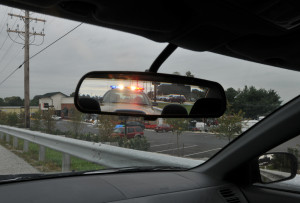
Not many people know breathalyzers, especially the handheld kind, can be inaccurate. Breathalyzers need to be calibrated at least every month to ensure it is still giving accurate readings; if it isn’t, the technicians repair the problem. However, even if the machine is working, there are certain circumstances in which it might indicate the presence of alcohol in the blood in people who are completely sober.
False breathalyzer readings could be caused by several different chemical factors in a person’s body. Acetone in the breath, for example, might cause a false blood alcohol concentration (BAC) result from breathalyzers. According to research acetone exists in the breath of average people in high enough amounts to cause false readings, especially if people are hypoglycemic. Diabetics can have levels of acetone in the breath high enough to get false BAC readings of 0.06%.
Other factors, such as breath fresheners, mouthwashes, and toothache medicines can also cause a false positive. Some mouthwashes, for example, can leave alcohol vapor in the mouths of people who might later be asked to take a breath test. These substances can skew the readings.
Environmental factors can also influence the outcome of a test, including fumes, varnish, and chemicals such as plastics and adhesives. Depending on where you are asked to take your test, the results could be affected by any fumes you may detect in construction sites or chemical plants nearby.
Last, breathalyzers run on special software. Just as computers rely on operating systems, these breathalyzers depend on the software to function. If the software develops bugs or glitches, those might manifest in how the device performs.
If you’ve been accused of driving under the influence (DUI) of alcohol, don’t hesitate to call our skilled York DUI attorneys. Ilkhanoff & Silverstein is a firm dedicated to defending the rights and freedom of our clients. Let us see what we can do for you.
Contact us about your case by calling us at (717) 744-0531 or filling out our online form to schedule a consultation today.

